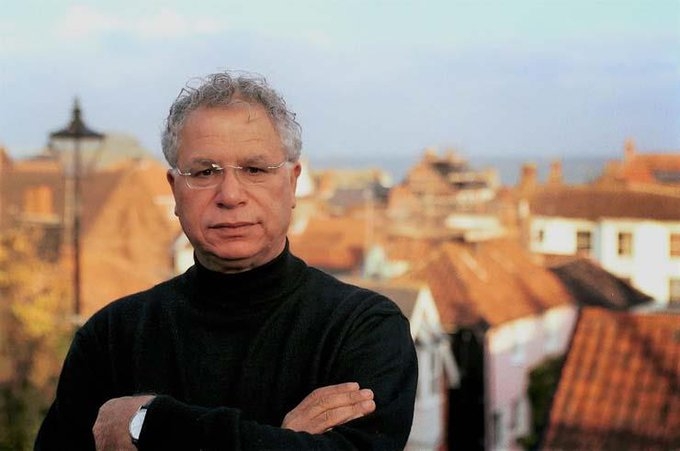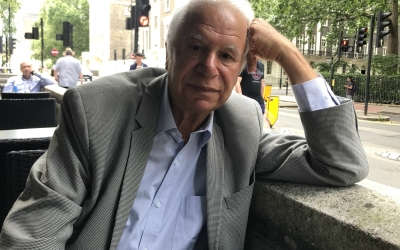Leading Palestinian poet Mourid Barghouti dies aged 77

The leading Palestinian poet and novelist Mourid Al-Barghouti has died at the age of 77 on Sunday evening in Amman, Jordan, his son announced on social media.
Born in the village of Deir Ghassaneh, near Ramallah, in the occupied West Bank in 1944, Barghouti spent most of his life in exile in Egypt, Hungary, Lebanon and Jordan. The cause of death was not announced.
'I have a problem with both totalitarianism and opposition factions, with pro- and anti-regime newspapers'
- Mourid Barghouti
In 1963, Barghouti travelled to Cairo to study English Literature. After Israeli authorities occupied the West Bank in the 1967 Middle East war, they banned him from returning back to his village near Ramallah.
He remained in Cairo and married the acclaimed Egyptian novelist and academic Radwa Ashour, with whom he had a son, the well-known poet Tamim al-Barghouti.
A decade later, Egypt's then-president Anwar Sadat ordered Barghouti to leave Egypt, along with other non-Egyptian intellectuals, on the eve of his visit to Israel in 1977. The poet headed for Beirut, then left in 1981 for Budapest, where he lived for 13 years. He returned to Egypt in 1994 to be reunited with his wife and son.
New MEE newsletter: Jerusalem Dispatch
Sign up to get the latest insights and analysis on Israel-Palestine, alongside Turkey Unpacked and other MEE newsletters
He visited his birthplace in Palestine only after the peace agreement signed between Israel and the Palestinian Liberation Organisation in 1993. He eloquently wrote about his exile life and his return journey in his book I Saw Ramallah, which was followed by another book I Was Born There, I Was Born Here, both translated into English.
Barghouti published 12 poetry collections, and Midnight and Other Poems was translated into English.
His verse is picturesque, writing as if using a camera lens in various angles and positions, utilising the senses to present a gallery of images and generate feelings.
'I gave everything to poetry'
Barghouti’s poems tackle intimate stories and metaphors of love, homeland, childhood and family, but also open up to catch the macro meanings of life.
"I gave everything to poetry, which is the centre of my life. All my travels, writings and readings are about poetry," he told Middle East Eye in an interview in 2019.
'I am against the idea of pledging allegiance to politicians'
- Mourid Barghouti
Speaking about his exile, he said that he lived in 46 houses, in three continents.
"I have left [the houses] against my will... I don't attach myself to places, because I'm afraid I would leave them. I live in time not in places, and I write most of my poems during winter," Barghouti said.
Though Barghouti was close to factions of the PLO, he kept a distance from their ideologies and Palestinian political rivalries.
"I defend my intellectual independence, and I am against the idea of pledging allegiance to politicians," he told MEE, while on a visit to London for a poetry reading event.
"I have a problem with both totalitarianism and opposition factions, with pro- and anti-regime newspapers. First and foremost, the poet has to be close to his true self, and not close to any cultural or political scene," he said.
The Palestinian-American thinker Edward Said wrote a foreword to Barghouti's I Saw Ramallah, saying that "what gives this book an unmistakable stamp of profound authenticity is its life-affirming poetic texture".
Zahi Wehbe, the distinguished Lebanese poet and TV host, tweeted that he shared friendship, talks and TV shows with Barghouti talking about Palestine, life and love. Wehbe said that Barghouti departed this world to return to his beloved late wife, Radwa Ashour, and his friends.
"He left his poem as a compass pointing towards the homeland... Farewell, Mourid Al-Barghouti," he wrote.
Middle East Eye delivers independent and unrivalled coverage and analysis of the Middle East, North Africa and beyond. To learn more about republishing this content and the associated fees, please fill out this form. More about MEE can be found here.


